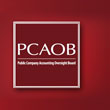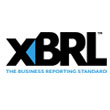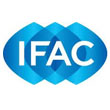articles
 |
In the Midst of Changes“It is not the strongest of the species that survive, nor the most intelligent, but the ones most responsive to change” - Charles Darwin An organizational development consultant says, “The winds of change are life generating opportunities but the waves of development invariably require order and stability. There is always a paradox in every change. As a law of life, out of order comes the need for change, but out of change comes the need for order. The order and norms of things require the system to take stock of breath to settle down for stability and sustainability.” To have order, the agent of change must be a role model and must have the credibility and respect of all. Large-scale change programs are successful only when they are led from the “top” by committed and honest change agent leaders, and are implemented with purpose and passion anchored on core values or core purpose that transcend boundaries of diversity to engender unity. With deeply rooted core purpose/values, one is able to scale the heights or extend beyond the norms of service of sustainability. Peter Senge describes a leader with ‘personal mastery’ as someone who constantly strives to see current reality clearly and understands that there may be differences between her/his perceptions, mental models and true reality. |
 |
In Pursuit of Quality AuditThe US Experience Many may still recall the Enron accounting scandal and how it precipitated the significant changes in the accounting and auditing landscape. As a consequence of the incident that had global impact, the Sarbanes-Oxley Act was passed in 2002 in the United States. This paved the way to the creation of the Public Company Accounting Oversight Board (PCAOB). The PCAOB (the Board) is the independent, quasi-government oversight entity that has the statutory authority over the registration, standard-setting, monitoring and disciplinary actions for public accounting firms that audit public clients. It conducts periodic inspections of audit firms meant to restore and enhance public confidence in the auditing profession. The results of the periodic inspections are released as Inspection Brief aimed at establishing and reporting audit quality indicators. Based on the latest Board’s staff inspection brief released early November of this year, the inspectors examined parts of more than 780 public company audits in 2016 and reviewed the system of quality control at more than 190 firms. The brief highlighted three main areas where recurring deficiencies were most frequently found – |
 |
XBRL & the Future of Financial Reporting“The boundaries of physical and digital worlds are melting at unprecedented speeds, leaving many of our policy-makers, heads of government and business people unprepared to integrate new concepts into decision-making processes.” - Global Agenda Outlook 2013, World Economic Forum In the last meeting of the International Auditing & Assurance Standards Board (IAASB) Consultative Group (CAG) and the International Ethics Standards Board for Accountants (IESBA) CAG at the Public Interest Oversight Board (PIOB) offices in Madrid, Spain on September 11-13, 2017 (my first participation as global representative of the International Association of Financial Executives Institutes), Mohini Singh of the Chartered Financial Analyst (CFA) Institute presented “Data & Technology: Transforming the Financial Information Landscape”. The key reference of the presentation is the use of technology to generate structured data. While not much discussion was made on how structured data may be created, one can surmise that XBRL is the key point. For the uninformed, let me provide some backdrop (adopted from Michael Cohn’s article, Accounting Today, July 20, 2017) on XBRL which stands for eXtensible Business Reporting Language. XBRL technology uses a data-tagging format that makes it easier for investors and analysts to compare financial information across companies and industries. |
 |
Now and Then, A Contrast"When virtue is lost, benevolence appears, when benevolence is lost, right conduct appears, when right conduct is lost, expedience appears. Expediency is the mere shadow of right and truth; it is the beginning of disorder. ” - Lao Tzu Amidst the enormity of information and the need to process them to achieve multifarious tasks/outputs, the use of technology and its endless evolution represent the reality of the work place. I summarize below three recalls of situations to highlight this reality. Situation 1 Five decades ago, taking the licensure examinations for certified public accountants required the use of fountain pen and computations were done “long hand” without the use of calculators for they were unheard of. The examinations had queries requiring written narratives as answers. It took almost a year before the results of the examinations were officially known. Fast forward 25 years later, the licensure examinations were “fully computerized” meaning, all the questions were in multiple choice format - there was no need for presenting computations and there were no questions requiring explanations or presenting narrative replies. The examinees’ answers to the questions were registered by using a ball pen to identify the chosen letter corresponding to the answer. The official results of the examinations were released a couple of days or so after the last examination day. |
 |
Integrity is Our Middle Name“An accountant is someone who solves a problem you didn't know you had in a way you don’t understand.” - Anonymous At this time of the year, the professional accountants are in their busy period for their companies/clients with business year ending December 31. The period from mid December until the deadline for filing of income tax returns may be considered as a “crazy period” for the accounting professionals. Accountants/auditors are professionals who deal with business source documents, records of transactions, spreadsheets, financial reports, analyses thereof and more. Long hours of work, objectivity, thoroughness and professional skepticism are a few of the words that describe the attributes of accountants/auditors. They put on the line their reputation as they do their tasks. From a strictly professional conduct of work, one can say the accounting profession is very straightforward – concepts and principles as well as standards of accounting, auditing, code of ethics, business and tax laws & regulations serve as guideposts to these professionals. Oftentimes, accountants are described as reserved, introvert who only appreciate numbers, and are not necessarily people persons. They are perceived as secretive as they are into the particulars of the businesses they work on and are bound by confidentiality. |
 |
The Race for Supremacy“If you do not hold your ground in the Pacific, you cannot be a world leader.” - Lee Kuan Yew In 2011, political scientist Aaron L. Friedberg wrote about his views on the United States and China global rivalry. He explained how the two countries defined their goals and their strategies. He pointed out that in varying degrees, the countries in the region were getting wary of China’s economic rise though the predominant trend over the last decade was for these countries to move closer to Beijing. According to Friedberg, China’s neighbors would be increasingly disinclined to antagonize it, for their economic futures abound up far more with Beijing than Washington. Fast forward 2017 or six years after, what Friedberg said then may be worth recalling against the unfolding realities. The Philippines elected a new President six months earlier than the United States. China has kept the ruling party for a long time and has navigated its journey to rise from being a sleeping giant to a powerhouse with its robust economy and steady governance focused on set goals and strategies. With completely different cultures, forms of government, language, demography, and more, it is a challenge to objectively compare/analyze the United States and China side by side. |
 |
A Global Call to Fight Corruption“Defeating corruption—and thus immeasurably improving the lives of citizens—can only be achieved through re-energized collaboration between, and commitment of, leaders from both the public and private sectors. Both sectors require transparent, consistent and robust anti-corruption measures, and effective internal controls that are critical to good governance and holding officials accountable. A greater focus on strong governance and compliance structures will help cultivate self-reporting cultures that empower individuals to do the right thing.” - Olivia F. Kirtley The Organization on Economic Co-operation & Development (OECD) hosted a ministerial meeting on the Anti-Bribery Convention in Paris last March 16, 2016. Some 42 state representatives together with other heads of international organizations and leaders from the private sector and civil society were in attendance. The deliberations focused on the following –
|
 |
On Financial Secrecy & Leaks“If governments did not mislead their citizens so often, there would be less need for secrecy, and if leaders knew they could not rely on keeping the public in the dark about what they are doing, they would have a powerful incentive to behave better." - Peter Singer It is only the fifth month of the year yet several financial scandals have hugged the headlines of broadsheets in the Philippines. In February, hackers successfully moved US $81 million from the Bangladeshi’s account with the Federal Reserve Bank to a Philippine universal bank. The funds could have finally found their way to casinos and elsewhere. The matter is still under investigation by the Society for Worldwide Interbank Financial Telecommunication (SWIFT), a supersecure system that banks use to authorize payments from one account to another. (One analyst describes SWIFT as the Rolls-Royce of payments networks.) Also probing on the heist are the Philippine senate and the Bangladeshi government. |
 |
Financial Regulatory Principles“This clear signal from a broad, non-partisan group in one of the world’s most important trading centers highlights the urgent need for a more globally consistent approach to regulation. . . . The current fragmentation is creating a regulatory environment that encourages more risky trading and financing activities in often unregulated domains, and allows for the exploitation of gaps in regulation globally. . . ” - Fayez Choudhury On December 8, 2015, the International Federation of Accountants (IFAC) in cooperation with the Hong Kong Institute of Certified Public Accountants (HKICPA) put together in a roundtable forum some thirty senior executives and experts from regulatory agencies, financial markets, governments, academe, listed companies, and the accounting profession to deliberate on the financial regulatory environment. |
 |
The Seeming Currency War & the Philippines: Some Insights"Independently, every country is looking at their own weak economies but all are failing to grasp nettle of structural reform". - Michael Every Last August, China depreciated the yuan by nearly 2%. While the United States is about to unwind its quantitative easing (essentially printing money to prop up demand and revive growth) once the unemployment target is secured, the dollar is strengthening in anticipation of rising interest rates. As the world’s largest economy is expected to grow by 2.5% this year, economies that hope to ride the buoyant tide of American demand are gearing to gain more by further depreciating their already depreciated currencies. This seems to have started talks and perhaps worries of a global currency war, a term that in recent memory was made popular by Brazilian Finance Minister Mantega in 2010 during the heat of the global financial crisis. |
 |
The Filipino Professional Accountant & the Corruption Environment“A distinguishing mark of the accountancy profession is its acceptance of the responsibility to act in the public interest. The IESBA Code of Ethics for Professional Accountants (the Code) provides ethical requirements and guidance to help professional accountants (PAs) to meet this responsibility.” - International Ethics Standards Board for Accountants (IESBA) A recent report from the global anti-graft watchdog Transparency International (TI) disclosed that the 2015 Philippine score in the Corruption Perceptions Index registered at 35 out of a possible 100, placing the country to rank 95 among 168 countries. It was also noted that the country’s score is “based on expert opinions of public sector corruption” and is lower than 2014 score of 38. The region’s average score stands at 43/100. Regionally, New Zealand topped it at 88 followed by Singapore’s 85. (From Rappler’s Report) |
 |
Some Views on Low Oil Price“What goes up, must come down - “Spinning Wheel” Blood, Sweat & Tears In November 2014, OPEC decided not to cut production quotas to protect its market share. This resulted to the halving of oil prices to settle at $51 per barrel last year and the price is expected to average at $42 per barrel this year. Last month saw oil prices breaking the $30 per barrel floor. So, what is causing this and what will this mean for every Juan? |
